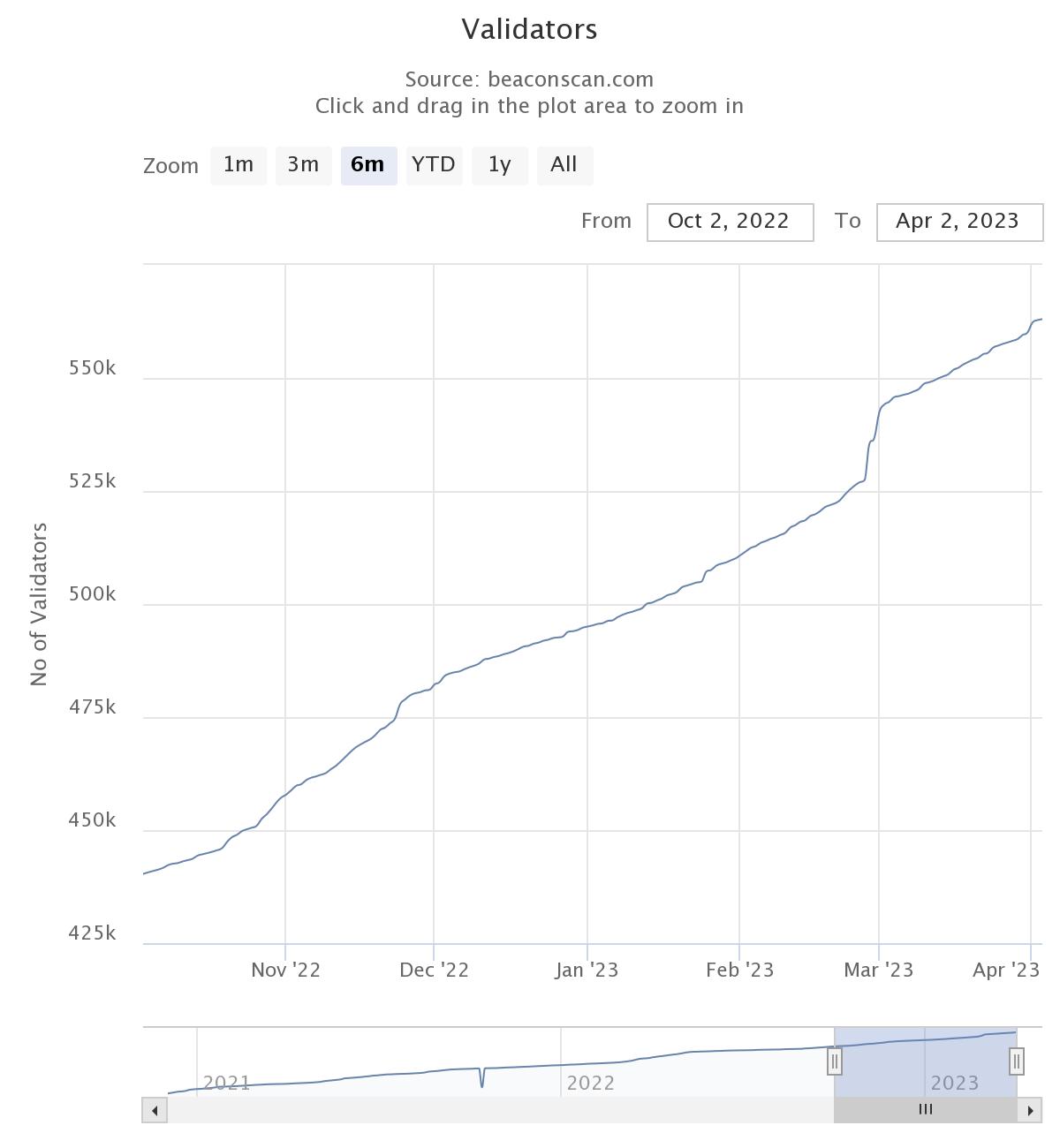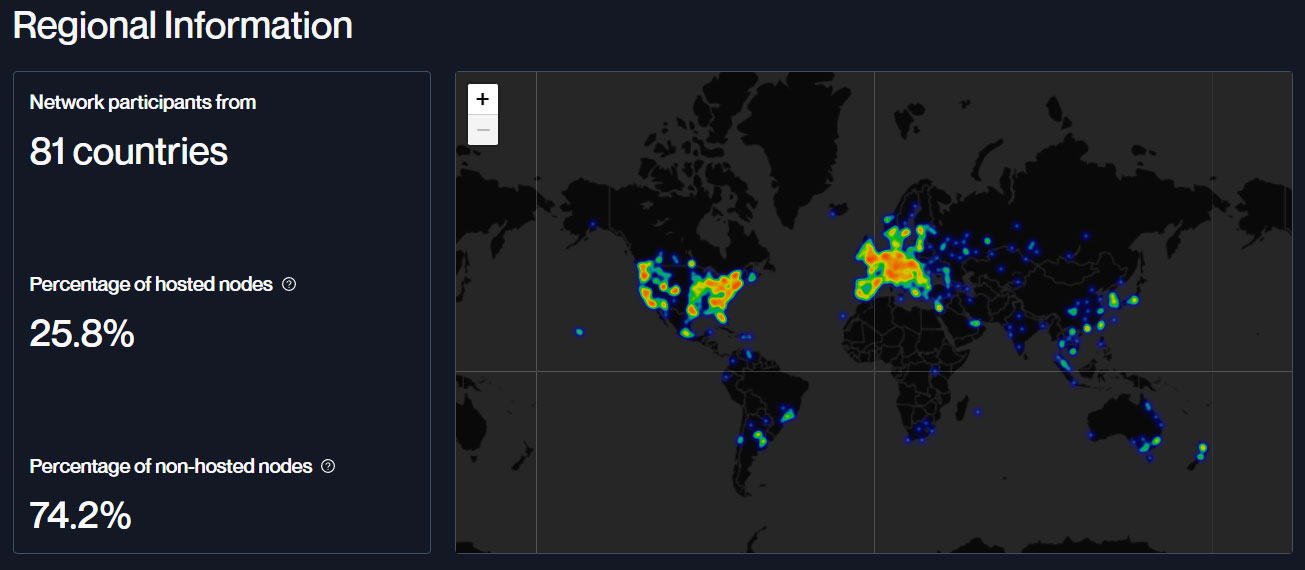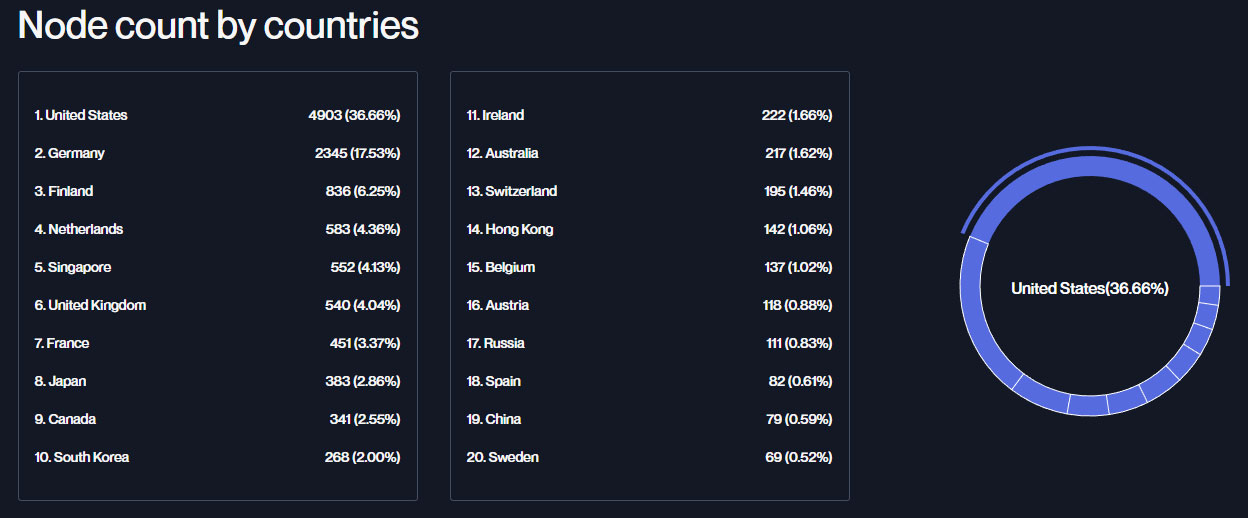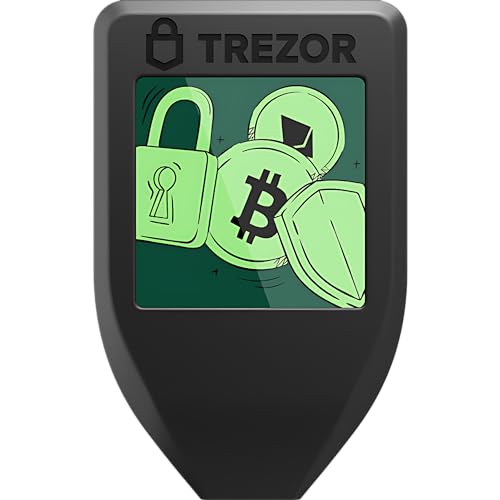In Q1 2023, Ethereum’s proof-of-stake network welcomed a staggering 66,000 new validators, pushing the total count from 495,270 in early January to 562,236 by the end of March. This remarkable growth not only showcases the increasing trust in the Ethereum network but also has significant implications for its security and decentralization.
Validators: The Backbone of Ethereum’s Network Security and Decentralization
Validators play a crucial role in Ethereum’s ecosystem, ensuring network security and decentralization by validating transactions and preventing the addition of invalid transactions to a block. The rising number of validators indicates an increase in the number of individuals and entities willing to participate in the platform, thus making it more robust and secure.

The growing validator count could potentially have a bullish impact on the Ethereum (ETH) price, especially ahead of the highly anticipated Shanghai upgrade, scheduled for mid-April.
Global Expansion of Validators Increases Network Resilience
Recent reports reveal that there are approximately 13,600 physical nodes spanning across 81 countries, with many run by home stakers. This widespread distribution offers a high degree of resilience, decentralization, and diversity to the Ethereum network.
With the total value staked on the Ethereum network surpassing 18 million ETH, launching an attack on the network becomes increasingly difficult and costly. To successfully execute a network reorganization, attackers would need to gain control of 51% of Ethereum’s processing power, a formidable task considering the growing number of validators.

Becoming a Validator: The Staking Process
To join the ranks of Ethereum validators, an individual or entity must deposit 32 ETH. Once the deposit is made, the validator earns staking rewards from the network in exchange for their services. It’s important to note that staked funds are locked and cannot be accessed until the long-awaited Shanghai upgrade.

Ethereum’s Decentralization: A Positive Trend Ahead of Shanghai Upgrade
Ethereum validators began staking in 2021, following the launch of the Beacon Chain. Since then, their rewards have grown steadily as more validators joined the network. While concerns about the “centralized” nature of the network have been raised, no signs of censorship have surfaced.
The continuous growth of Ethereum validators is a positive development for the network, contributing to increased decentralization. With the Shanghai upgrade on the horizon, allowing withdrawals of staked Ethereum, more validators are expected to join the network, potentially enhancing its decentralization and security even further.
If you are able, we kindly ask for your support of Logll Tech News today. We appreciate it.

Sergio Richi
Editor, Logll Tech News
⭐️⭐️⭐️⭐️⭐️ Wallet for Ethereum
Trezor Model T - Advanced Crypto Hardware Wallet with LCD Touchscreen, Secure Bitcoin & Over 1450 Coins for Maximum Security and Financial Independence
$179.00
Ledger Nano X Crypto Hardware Wallet (Blazing-Orange) - Bluetooth - The Best Way to securely Buy, Manage and Grow All Your Digital Assets
$104.00
Ethereum Coin Crypto ETH Blockchain Cryptocurrency T-Shirt
Best Offer Today
Conclusion: Ethereum’s Future Looks Bright with Growing Validator Participation
As the Ethereum network continues to expand its validator count, it becomes increasingly secure, decentralized, and resilient. This impressive growth in Q1 2023 is a testament to the trust and enthusiasm of the global Ethereum community, showcasing the platform’s potential to further strengthen its position in the world of decentralized finance and blockchain technology.
The upcoming Shanghai upgrade, with its highly anticipated features, is expected to attract even more validators, resulting in further network decentralization and security. As Ethereum moves forward, this positive trend of validator growth and decentralization bodes well for its future and the continued development of the broader blockchain ecosystem.











